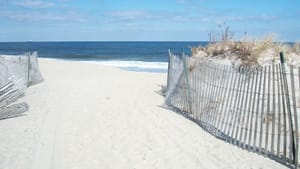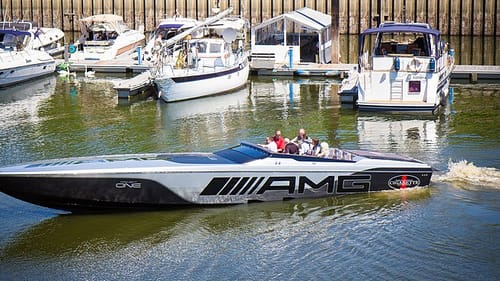Stay in the Loop
BSR publishes on a weekly schedule, with an email newsletter every Wednesday and Thursday morning. There’s no paywall, and subscribing is always free.
Coexisting down the shore
Heading to the Jersey shore this summer? Here’s what locals want Philadelphians to know

Like spawning grunion, certain species must return to the beach. They have no choice. They must go there and enact their undulant rites, their shimmyings and their shakes, before sobering up and going back whence they came. To me, this explains the annual shoreward migration from Philly and surrounding communities. It’s completely natural. Like salmon or colorful birds. They arrive, they whoop it up, they leave.
As a shore kid I can tell you: this leaves the locals both infuriated and bereft.
Civilization emerges
Bereft, I say, because no one has as much fun as the shore visitor. No one has such endless money. No one has so many beach toys, bicycles, barbecue stoves, and outdoor games as the shore visitor. No one is so brimming with fun ideas for the family that will become cherished memories. And no one is so willing to flaunt this before the hard-working locals with their sweaty faces, as they pull on their muck boots and head off for another day at the marsh or the fish marina or wherever shore people work.
Infuriated, I say, for obvious reasons. Shore visitors spend millions every year at the stretch of beach running from lower Brigantine all the way to the tip of Cape May, and they seem to think that without them the shore would stop. Tourist money is indeed welcome. But in recent years residents of the shore, working in teams by torchlight, have developed a variety of industries that have eventually won clear of tourist dependence.
Banks, insurance offices, doctors, schools—most of the trappings of civilization—all exist at the shore now. Especially where I grew up on the mainland, you can go days without seeing a tourist-related product or industry (unless you count Alka Seltzer).
Tips for getting along
In fact, shore folks have reached a sort of readiness for detente with the annual migration.
I know the need for an easing of relations. I have seen the rudeness shown to visitors. I have watched many times as confused Pennsylvanian motorists, moving slowly through complicated intersections, have received the encouragement of sustained horn blasts from the local drivers behind them. I have seen beach-going families scatter in terror while crossing streets as locals sped near them. I have received the benevolence of local guidance myself when in a shore bar on Labor Day. Get in your car and go home, someone said. My home was near; I wore a Pennsylvania disguise.
I propose, therefore, that shore folks and tourists learn to get along, even if it’s just as video viewers learn to get along with commercials. Here are some tips:
1. Go easy on the we-pay-your-salary theme. It falls flat and is not even mostly true. Shore industries have attained the highest markers of civilization available on the East Coast, up to and including Wawas.
2. Show some interest in local life. Whether it’s restaurants, lighthouses, bird sanctuaries, beach replenishment projects, marine-mammal rescue, local historical sites, all the way to local politics, if you show interest you will shine. Locals like to believe they are full citizens of the world.

3. Talk to locals. Assume good will. Locals like to be talked to. It makes them feel they are part of the big fabulous vacation life that you are currently exhibiting to them. Unfortunately, you will remember the jerks who honked or butted or frowned. Keep in mind this is not the majority.
4. Consider trading your jet ski for a canoe or kayak. The rivers and bays around the shore are just too sensitive for an onslaught of hotdoggers on tiny speedboats. A kayak is gentler and will show you more. If you own a cigarette boat, consider burning it.
In return, I promise that I and those I am able to influence will cease our midnight sabbaths and carp sessions and promise to give the correct directions to visitors for a change. Additionally, I will encourage my friends to visit Philadelphia, a long and scary distance for a shore dweller to travel, there to be dazzled by the hurry of the city, where they may learn yet more of the big world outside.
Image description: A bright photo of a white-sand New Jersey beach, with blue water and sky. A flimsy wooden fence holds back the sand dunes.
Image description: A photo of a long, narrow speedboat carrying several people as it motors away from a dock with several other boats attached.
Sign up for our newsletter
All of the week's new articles, all in one place. Sign up for the free weekly BSR newsletters, and don't miss a conversation.

 Rob Laymon
Rob Laymon